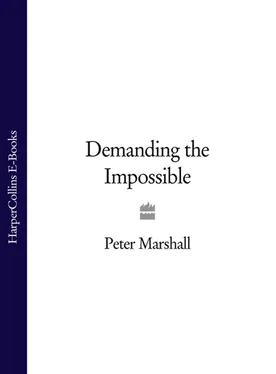a spontaneous and free production of goods would spring up, followed of course by a spontaneous free exchange – a self-supporting society, based not on individual dread and anxiety, but on the common fulness of life and energy. 36
Work would be based on voluntary choice according to taste and skill and there would be common property. A non-governmental society would therefore be a free and communal society.
But while Carpenter put forward his case in reasoned arguments with careful evidence in his pamphlets, he was primarily a poet. As a young man, Shelley’s libertarian world had been his ideal. When he came across Walt Whitman at twenty-five, he felt a great surge of joy. To these influences was added a deep reading of the Bhagavadgita . Carpenter went on to express his own vision of a free world in his extraordinary rhapsody Towards Democracy (1883) which embraced the sexual revolution, direct democracy, vegetarianism and pacifism. Whatever his contemporaries thought of him, he refused to still his song:
O Freedom, beautiful beyond compare, thy kingdom is established!
Thou with the thy feet on earth, thy brow among the stars, for ages us thy children
I, thy child, singing daylong nightlong, sing of joy in thee. 37
In place of existing civilization, which pressed on people and left them ‘cabin’d, cribb’d, confin’d’, Carpenter called for a simple life in a decentralized society of fields and workshops in which every person would have a cottage and sufficient land. Freedom emerges once the people love the land:
Government and laws and police then fall into their places – the earth gives her own laws; Democracy just begins to open her eyes and peep! and the rabble of unfaithful bishops, priests, generals, landlords, capitalists, lawyers, kings, queens, patronisers and polite idlers goes scuttling down into general oblivion. 38
The individual would then live in harmony with himself, his fellows, and his natural environment. Carpenter hoped moreover that he would develop a higher form of consciousness in which the personal self is experienced as part of the universal Self in ‘The Everlasting Now’. But the Self can only find expression in Democracy – equality or freedom – for they come to the same thing.
Carpenter was no idle poet or mystic. He inherited a small independent income after being a teacher, but he tried to realize his ideal by building his own house, living off the land, and making sandals. It is for trying to practise what he preached that Carpenter has rightly been called the ‘English Tolstoi’. 39 And while he remained on the fringes of the anarchist movement, and felt private property was more important than government in bringing about the downfall of humanity, his decentralized vision of free society without law is entirely anarchistic.
The poet and artist William Morris was a friend of Carpenter; he admired the simplicity of his lifestyle, while Carpenter respected his love of work and humanity. They were both involved for a time with the Democratic Federation and Socialist League in the 1880s and 1890s. But while Morris drew conclusions similar to those of Carpenter, he was more directly involved in the socialist movement and its political struggles. At the same time, he developed an original form of libertarian socialism which stemmed from a hatred of modern civilization with its physical ugliness and emotional constraint. His aim was not only to create beautiful things but also a beautiful society. The ‘idle singer of an empty day’, as he appeared in his early epic poem The Earthly Paradise (1868–70), moved from idealizing the Middle Ages and elaborating Celtic and Norse mythology to an anarchist vision of a free society.
Morris claimed that as a middle-class Englishman he had to cross a ‘river of fire’ before becoming a socialist. 40 But his socialism began with an intense desire for ‘complete equality of condition’, and he became a communist, before he knew anything about the history of socialism. 41 Ruskin had taught him that art is primarily the expression of a person’s pleasure in work; he became convinced that it would only be just if all humanity could find such joy in work. Since this was impossible under capitalism, Morris the cultivated pagan became a practical socialist and joined the aforementioned Democratic Federation and then the more left-wing Socialist League.
There is a strong libertarian temper to Morris’s writings and he was well aware of the anarchist case against government and political authority. G. K. Chesterton wrote him off as ‘a sort of Dickensian anarchist’. There is no doubt that he hated the centralized State. He had, as he noted in 1887, ‘an English-man’s wholesome horror of government interference & centralization which some of our friends who are built on the German pattern are not quite enough afraid of. 42
It is not therefore surprising that many of his political essays have inspired anarchists. In ‘Useful Work versus Useless Toil’, he made a classic indictment of the capitalist division of labour which separated mental and manual work and reduced the worker to a mere machine operative. In clear and eloquent prose, he rejects capitalism, the ‘society of contract’, for its classes, its crude utilitarianism, its mass production, its machine domination and its compulsory labour. In its place, he advocates agreeable and voluntary work, with appropriate technology minimizing the time spent in unattractive labour.
In another essay, ‘The Society of the Future’, Morris sketched his libertarian ideal more boldly. His ultimate aim is ‘the freedom and cultivation of the individual will’. 43 In place of existing political society, he calls like Kropotkin for a federation of self-governing communes. Life then would become unconstrained, simple and natural. It would be
a society which does not know the meaning of the words rich and poor, or the rights of property, or law or legality, or nationality: a society which has no consciousness of being governed; in which equality of condition is a matter of course, and in which no man is rewarded for having served the community by having the power given to injure it.
It is conscious of a wish to keep life simple, to forgo some of the power over nature won by past ages in order to be more human and less mechanical, and willing to sacrifice something to this end. 44
In his utopian novel News from Nowhere , written in 1889 for successive issues of Commonweal , Morris offered one of the most persuasive glimpses of what a free society might be like. The revolution in England, we are told, has passed through two stages, not without bitter civil war, but a free and classless society has eventually emerged. Although for a time ‘State socialism’ doled out bread to the proletariat such a ‘slough’ was brought to an end. 45 In addition, the Committee of Public Safety set up to oppose the existing government at the beginning of the struggle was eventually dissolved.
There is nothing of the over-organized life and none of the centralized institutions obligatory in authoritarian utopias. For Morris, it is common sense, as clear as daylight, that government is unnecessary: ‘a man no more needs an elaborate system of government, with its army, navy, and police, to force him to give way to the will of the majority of his equals , than he wants a similar machinery to make him understand that his head and a stone wall cannot occupy the same space at the same moment.’ 46 The site of the Houses of Parliament has become a dung market, for there is no longer any need to house parliament (‘a kind of watch-committee sitting to see that the interests of the Upper Classes took no hurt’) since ‘the whole people is our parliament’. Government, that ‘machinery of tyranny’ which protects the rich from the poor, has become obsolete in an equal society. 47
Читать дальше












